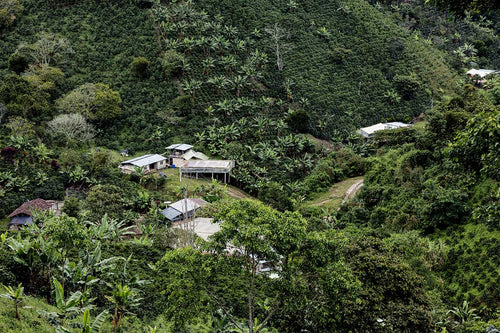La Magdalena is a collaborative lot from producers in the Pitalito municipality started by one of our import partners Caravela in 2004. The project values conservation, cultural preservation, sustainable farming practices and community engagement. The producers involved have an average farm size of around five hectares and have two harvests one between May and August and another between October and December. Typical of farms in Huila they primarily grow Caturra, Colombia and Castillo.
Collectives like La Magdalena afford their member farmers a certain amount of security and support that is difficult to achieve for smallholder farms working on their own. Additionally for us as a buyer it means that there is a good volume of high quality coffee being produced that we can continue to buy as our demand increases.. Essentially we can grow with these producers rather than having to chop and change.
Elevation: 1300-1900 Meters Above Sea Level
Varietal: Castillo, Colombia, Caturra
Cup score: 87
Price paid per kg: £8.77
Process: Fully washed, then dried on parabolic
covered patios
